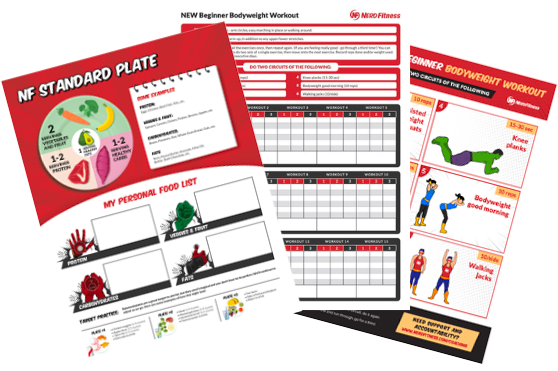Today we’re going to talk about an internal battle that takes place every time we embark upon a new diet or workout plan.
“Learned Optimism” vs. “Learned Helplessness.”
- Learned Optimism is feeling confident in our ability to complete a task or build a habit.
- Learned Helplessness is feeling so pessimistic we don’t even bother attempting the task or habit.
If we’re going to level up our lives, it’s important to be aware of when we’re being subconsciously influenced by our learned optimism or our learned helplessness.
Luckily I’m going to teach you this very thing… with the help of a dog, a gate, and a vacuum.
“Steve, is this where you draw some deep thought from a funny video that makes me feel things and rethink my life?” Yep! But only because I think you’re a good human and this is important.
Also, you look nice today.
I stumbled across this dog video on Reddit last week (#research) which perfectly encapsulates learned optimism vs helplessness. I promise it’s worth the 20 seconds.
In case you didn’t watch the video, here are those two behaviors at work:
- Learned Optimism: The dog at one point jumped over a small gate, which gave him confidence, skill, and the ability to clear small gates. His learned optimism had him jumping over a taller gate, and that success gave him even more confidence to jump over an even bigger gate.
- Learned Helplessness: However, the poor dog is terrified of vacuums. They make loud noises and can be scary! When this dog sees a vacuum, his thought process is to stay far away. He could just step right over or around this ‘barrier,’ and yet instead remains trapped behind it.
Like this dog, we humans have gates (learned optimism) and vacuums (learned helplessness) in our own lives, and we need to start being aware of them.
Let me share two examples:
If somebody told us to “lift a 5-lb weight today and a 6-lb weight next week,” we’d probably feel fairly optimistic about our ability to do so. We have the time and the ability, we have probably done it before, and this feels like a manageable progression.
Over time, if we train with slightly heavier weights each week, our brains (and our muscles) get progressively stronger and more confident that we can pick up more. We have direct evidence that shows us we can do this!
This is learned optimism.
On the other end of the spectrum, let’s say we’ve tried and failed going Keto five times. Our internal monologue says, “I suck at dieting and I’ll never lose weight and what’s the point!”
This really bums us out, which causes us to stop trying to change our diet, even when the right diet for us comes along! This is learned helplessness.
(Real talk: the Keto Diet is wrong for 99.99% of the planet and carbs make life worth living.)
So where does that leave us? It’s time to flip the script and start building optimism.
We Are Not Simply “Looking on the Bright Side”
I want to make one thing super clear: this is not manifesting positivity.
It’s not “fake it til you make it.” This isn’t toxic positivity, nor is it “just believe in yourself.”
The key word in both behaviors is “learned.”
The problem is not that we suck at diets, but that we only have evidence that confirms our belief that we suck at diets.
The reality is that we simply found a diet that doesn’t work for us. That’s it.
If we’re going to move from learned helplessness to learned optimism, we must change our thought pattern and then change our strategy:
- Question the narrative. “What if I’m not a lost cause because I couldn’t stick with Keto? It’s pretty restrictive…”
- Pick a small win that disproves the narrative. For example, “I managed to eat a vegetable every day this week and not snack between meals, maybe I AM capable of change if I pick small changes!” Suddenly there are cracks in the “I’m hopeless” armor.
- Build learned optimism with actual evidence. Each successful action we take is a vote for more optimism, and against helplessness. Even if we’re not perfect, we’re starting to make progress and changes, building momentum and optimism.
Here’s this sequence at work in a non-health example:
Maybe we were called “shy” by an uncle or parent as a young child. Then, we started thinking “Maybe I AM shy.” This mentality kept us from speaking up, sharing our opinions, or striking up conversations with strangers. As an adult, we believe we’re shy and that’s all there is to it.
But now, we’ve decided to try and become more social and assertive at work. We can start by questioning the learned helplessness that we are shy. We can disprove that narrative by completing small, slightly uncomfortable tasks:
- Asking somebody behind us in line what time it is.
- Chatting up our server at a restaurant.
- Telling our boss we’re going to take a day off.
The result of each action is almost irrelevant; we’re just disproving the old story of “learned helplessness,” saying “Maybe things will be different.” After this, we might decide to work with a therapist or coach to develop social skills and speak up for ourselves at work. Over time, we’ll have definitive proof that we can point to “I’m not actually shy” and “In certain social situations I can thrive.”
This is learned optimism.
I want to hear from you:
Where are the “vacuums” in your life?
And how can you question this narrative?
Hit reply to this email and let me know!
-Steve
PS: The top comment on that Reddit post is perfection: “No physical barriers are as powerful as those within our own mind”


